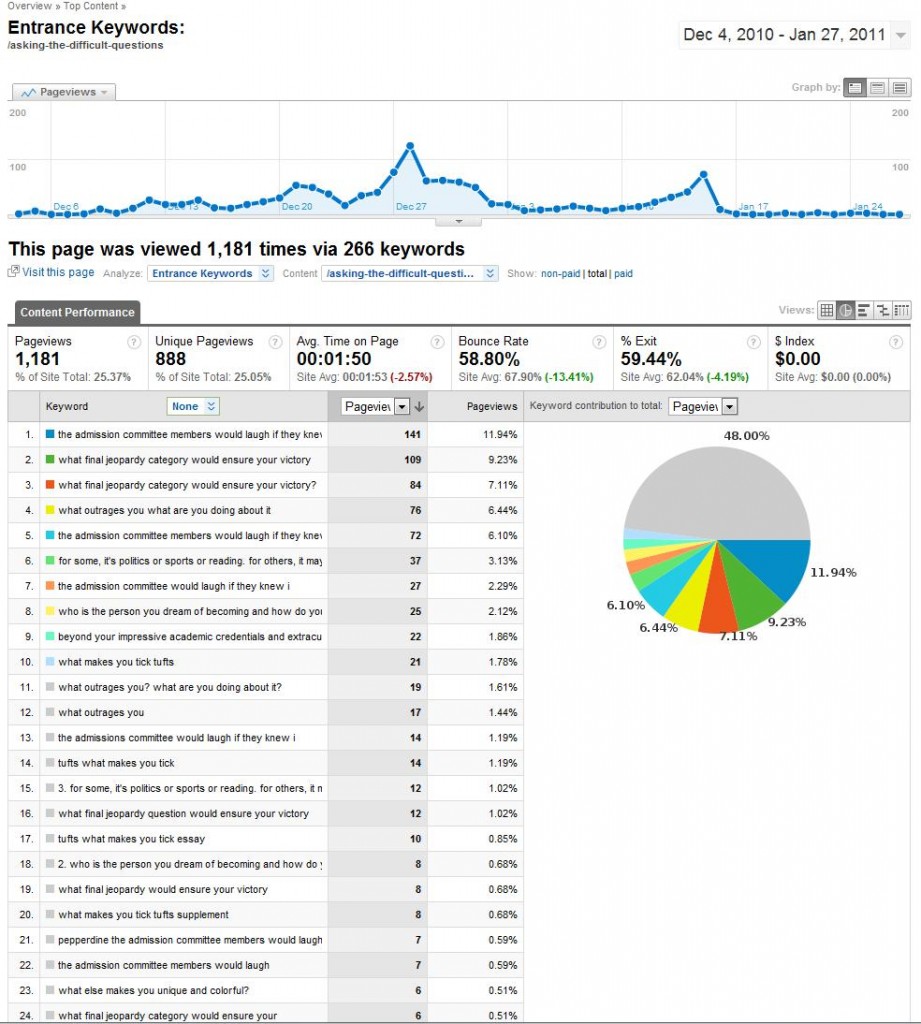Prospective College Students Ask Google For Answers
Early last December I published a collection of rather difficult questions asked by certain college supplements. To my surprise, I saw an unusual increase in organic traffic referred to my post regarding these obscure questions.
A few observations I’m taking away from this unexpected traffic:
- The two spikes in traffic occurred just before the application deadlines on January 1st and January 15th. I think its logical to associate these procrastinators as people who would be more likely to search the question on Google.
- Of the 12 questions posted, the most popular incoming search was “The Admission Committee members would laugh if they knew I…”, which was asked on the supplement for Pepperdine.
- In a close 2nd place was the question proposed by Wake Forest: “What final Jeopardy category would ensure your victory?”
- By combining the stats from the second Wake Forest question I posted, the Wake Forest supplement referred more traffic than any of the other college supplements. (About 3-4% of the total applicant pool at Wake Forest this year has visited my blog in the last two months.)
My blog is just one of 10 different websites on the first page of Google that is receiving traffic for these college application questions. The trend is much more widespread than the visitors to my blog. Beyond what the statistical vicissitudes indicate, I think this growing trend is revealing a shift in how students react to critical analysis.
For this small sampling of just over 1,000 applicants visiting my blog, there is a present shift of mindset from relying on personal thoughts to relying on the power of Google. All too often over the course of my high school career I’ve listened to my peers cite their research by listing “Google” or “Wikipedia” as their primary source. Many kids growing up in the internet age are now first turning to Google when they are prompted to find an answer that they should be creating themselves. Instead of students taking information based on legitimate credibility, students perceive that Google has already done this work for them by ranking website sources according to its relevance.
What I’m trying to emphasize is the increasing lack of critical thinking instigated by easy access to information that can be readily searched for on the internet. The expectation that a Google search will be able to accurately predict your opinion on topics such as personal strengths or world issues is outrageous. Fortunately the questions asked by college supplements encourage a self reflection, often forcing applicants to express their true thoughts and character. Perhaps these sometimes part philosophical and part personal questions should be asked more often in the classroom.

